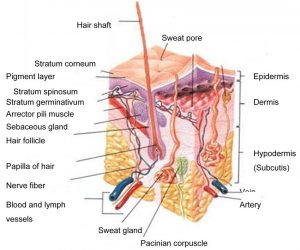Plant-derived oils such as coconut oil, argan oil or olive oil, have received a lot of buzz, but are they really better than a moisturizing cream?
Oils have gotten a lot of buzz in the beauty world and their allure is obvious: they are marketed as “pure” plant extracts, free of any suspicious fillers or preservative. Just a few drops can supposedly give the user dewy, glowing skin. Judging from the marketing hype, plants oils can deliver skin/hair miracles!
Plant oils may be good for softening skin and hair, and providing a temporary occlusive or water-sealant effect, but don’t do much more for the skin. What’s more, it’s easy to misjudge the right amount to apply and excess oils on the skin are an invitation to accumulate dirt/bacteria and cause breakouts.

Skin tissue is a complex mix of protein, lipids, oils and water, but what makes skin look plump and dewy is actually water, specifically water in the epidermis. The outermost layer of skin, the epidermis, receives water by capillary diffusion from the dermis, and the amount of this water is strictly controlled by the body’s physiology. This is why drinking more water has little effect on moisture levels in the epidermis, and it is also why the epidermis dries out when the surrounding air is dry. Therefore, if the epidermis is dry, one of the best things to do is apply water and humectants that bind water, along with a small amount of oils/waxes to seal the water in. A moisturizer has all these components in one neat package: water, oil/wax, and humectants. A really good moisturizer contains all of these components, plus natural moisturizing factors (NMFs) like urea and hyaluronic acid, that add to the naturally occurring NMFs in your skin and help to provide a longer lasting moisturizing effect that is far better than oils alone.